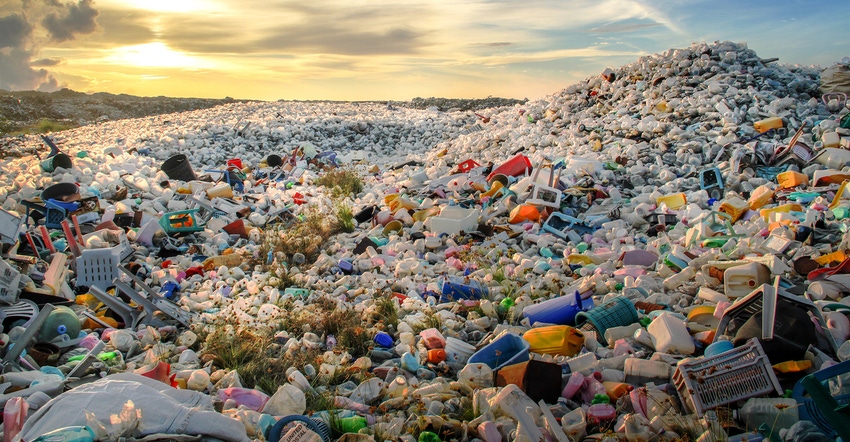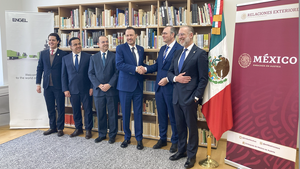Alliance to End Plastic Waste Releases 2020 Progress Report
Report outlines major global efforts to rid environment of plastic waste.
September 2, 2020

The Alliance to End Plastic Waste released its “2020 Progress Report,” detailing its commitment to project acceleration across its four strategic pillars of waste management and recycling infrastructure, innovation, education and engagement, and clean up. The alliance has activated 14 projects across 14 cities in six countries in Southeast Asia, India, and Africa. The report also features 55 member-led projects benefiting from a $400 million investment in building solutions to end plastic waste in the environment.
Milestones outlined in the "2020 Progress Report" across the four strategy pillars include the following:
Project STOP (Stop Ocean Plastics) in Jembrana, Northwest Bali, Indonesia, has created the regency’s first-ever solid waste management service with a full recycling system that will create new and permanent jobs. The alliance and Project STOP will create a system collecting 20,000 tons of waste per year. This involves a radical transformation at every societal level — citizen, government and community, said the alliance.
Zero Waste Plastic Cities is a combined vision of the alliance and Grameen Creative Labs co-founded by Professor Mohammed Yunus, a recipient of the Nobel Peace Prize. The initiative goes beyond addressing plastic waste leaking into the environment but also develops sustainable social businesses that improve the livelihoods of many in the cities of Puducherry, India, and Tan An, Vietnam.
Over the last year, the End Plastic Waste Innovation Platform with Plug and Play has fostered startups that can impact the plastic value chain. The program has seen more than 1,000 startups from Silicon Valley and Paris apply, while the third hub, Singapore, has seen widespread interest when it kicked off its accelerator program this summer.
Suez, as a world leader in smart and sustainable resource management and also a founding member of the alliance, is bringing its technology know-how to address plastic waste leakage in Thailand. A plastic recycling plant is now being built, the company’s first outside of Europe. This plant will convert 30,000 tons of locally collected polyethylene film waste into recycled materials.
The report also includes examples of cross-value-chain collaboration. For instance, Milliken, Lyondellbasell, and Berry Global are working together on a study of a secondary sorting system to increase recovery of valuable materials like paper and various categories of plastics.
“We have to act with urgency, as lack of action will result in millions of tons of plastic waste continuing to leak into the ocean if we do nothing today,” said Jacob Duer, President and CEO, Alliance to End Plastic Waste. “The progress the alliance has made in just 18 months is the start of a long road ahead. But we can shorten the road significantly when we act together across industry, government, civil society, and development agencies. The problem is solvable and our strategy is to apply a holistic approach backed by deep technical knowledge and resources from the full plastic value chain,” said Duer.
Duer added that the group’s ambition is to divert millions of tons of plastic waste in more than 100 at-risk cities across the globe, improve livelihoods for millions, and contribute to a circular economy in the next five years. “The alliance is demonstrating how successful plastic waste management solutions can unlock capital to scale and accelerate the pace,” said Duer.
Stopping plastic waste from leaking into the environment is everyone's responsibility
PlasticsToday asked Duer about the alliance’s role in educating people with regard to properly disposing of and recycling plastic waste. “Everyone — whether it’s people, the private sector, or public organizations — has a role to play to help end plastic waste from leaking into the environment,” replied Duer. “Today, the alliance is developing solutions specifically in cities most vulnerable to plastic waste leakage so that they can be scaled and replicated across the world. But as we engage with cities, those solutions must also embrace educating and engaging every sector in that ecosystem, so they are aware of the role they play and the change that is needed to end plastic waste at its source.”
As an example of this effort, Duer mentioned Project Stop Jembrana in Indonesia, a regency of 150,000 people, where, for the first time, household waste is collected and sorted. Duer acknowledged, however, that it is a process that requires behavioral change, not just infrastructure implementation. “We believe change is possible if all stakeholders collaborate, but more than that we want lasting change. To the latter [point], it is only possible if everyone knows why and the part they play to end plastic waste in the environment,” he added.
The 2020 Progress Report also announced the alliance’s 2025 ambition. With a strategic focus on infrastructure development, innovation, clean up, and education and engagement, the alliance and its members will build investable models and partnerships within five years that will:
Demonstrate zero plastic waste in multiple cities and divert millions of tons of plastic waste through projects in more than 100 at-risk cities.
Support healthy livelihoods for more than 100 million people by enabling local ownership of waste management.
Unlock at least five times its investment and much more to accelerate action and solutions to end plastic waste and build sustainable cities.
Download the Alliance to End Plastic Waste’s "2020 Progress Report" here.
About the Author(s)
You May Also Like




